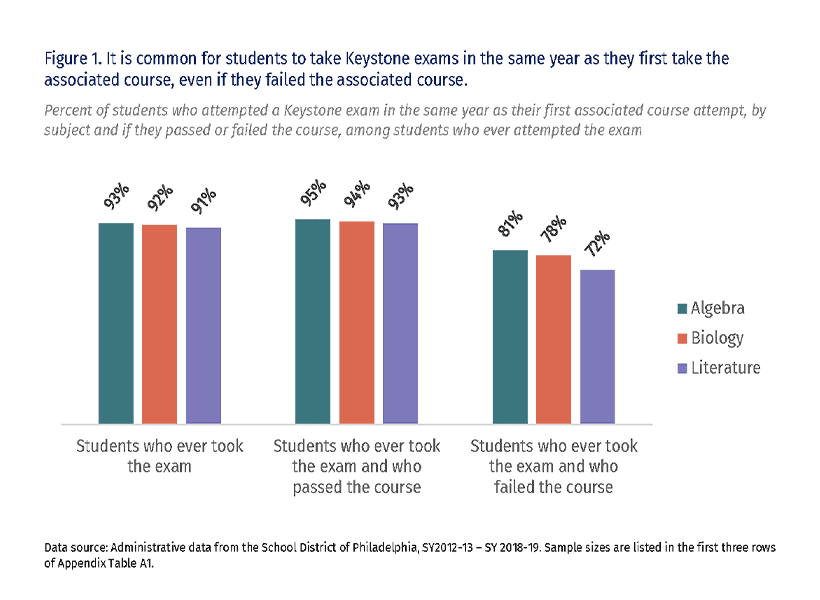Tooltip TextBy: Molly Pileggi, Sean Vannata, Alyn Turner, Theodore Wills, and Roland Reyes
July 2024
In Pennsylvania, high school students must now demonstrate career or postsecondary preparedness to graduate. Two of the five graduation pathways require students to demonstrate proficiency on Pennsylvania’s end-of-course subject exams for Algebra I, Biology, and Literature, known as “Keystone Exams.” This research delves into the “when and how” of these Keystone Exams in the School District of Philadelphia.
The report examines historical data from the ninth-grade cohorts expected to graduate in 2017-18 or 2018-19. This study explores the timing of when students first take Keystone-associated courses, the share of students that pass those courses upon their first attempt, and the Keystone exam-taking patterns of those who pass and fail those courses.
The researchers discovered that most students take Keystone-associated courses in 9th or 10th grade, but a significant portion fail those courses on their first attempt. While most of those who fail take the Keystone exam in the same year, very few pass. In fact, even among students who pass their associated course, pass rates for the Keystone exams are low in the District. The report also notes that the pass rates for Algebra and Biology exams present more of a challenge for the District than the Literature exam.
The research emphasizes the need for improved support to help students pass Keystone exams. The report recommends that students take the Keystone exam as close to the associated course as possible, regardless of whether the student passed the course. Additionally, the report suggests a review of the tools and guidance provided to support decision-making about which graduation pathway is right for individual students.
The study highlights the need for further research into what conditions help students pass Keystone exams. This research adds to the body of knowledge on the implementation and impact of high-stakes graduation requirements on student success. This information can help educators understand how to better support students in meeting these challenging requirements and provide them with the necessary skills to succeed beyond high school.


